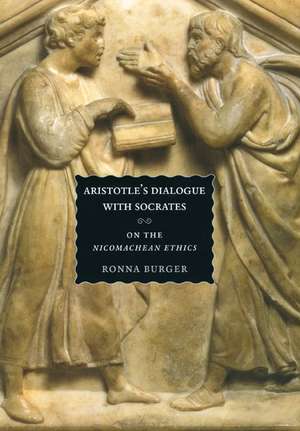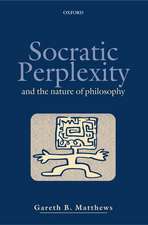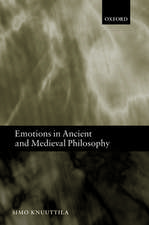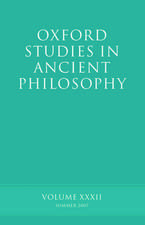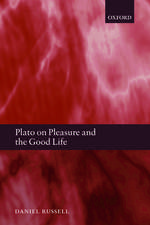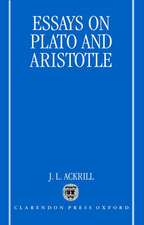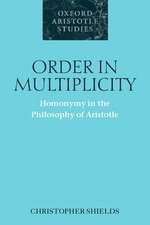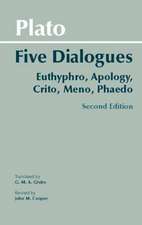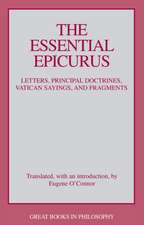Aristotle's Dialogue with Socrates: On the "Nicomachean Ethics": Emersion: Emergent Village resources for communities of faith
Autor Ronna Burgeren Limba Engleză Hardback – 17 iul 2008
What is the good life for a human being? Aristotle’s exploration of this question in the Nicomachean Ethics has established it as a founding work of Western philosophy, though its teachings have long puzzled readers and provoked spirited discussion. Adopting a radically new point of view, Ronna Burger deciphers some of the most perplexing conundrums of this influential treatise by approaching it as Aristotle’s dialogue with the Platonic Socrates.
Tracing the argument of the Ethics as it emerges through that approach, Burger’s careful reading shows how Aristotle represents ethical virtue from the perspective of those devoted to it while standing back to examine its assumptions and implications.
“This is the best book I have read on Aristotle’s Nicomachean Ethics. It is so well crafted that reading it is like reading the Ethics itself, in that it provides an education in ethical matters that does justice to all sides of the issues.”—Mary P. Nichols, Baylor University
Tracing the argument of the Ethics as it emerges through that approach, Burger’s careful reading shows how Aristotle represents ethical virtue from the perspective of those devoted to it while standing back to examine its assumptions and implications.
“This is the best book I have read on Aristotle’s Nicomachean Ethics. It is so well crafted that reading it is like reading the Ethics itself, in that it provides an education in ethical matters that does justice to all sides of the issues.”—Mary P. Nichols, Baylor University
| Toate formatele și edițiile | Preț | Express |
|---|---|---|
| Paperback (1) | 242.60 lei 6-8 săpt. | |
| University of Chicago Press – 20 aug 2009 | 242.60 lei 6-8 săpt. | |
| Hardback (1) | 584.88 lei 6-8 săpt. | |
| University of Chicago Press – 17 iul 2008 | 584.88 lei 6-8 săpt. |
Din seria Emersion: Emergent Village resources for communities of faith
-
 Preț: 156.84 lei
Preț: 156.84 lei - 8%
 Preț: 311.68 lei
Preț: 311.68 lei -
 Preț: 138.81 lei
Preț: 138.81 lei -
 Preț: 115.82 lei
Preț: 115.82 lei -
 Preț: 126.25 lei
Preț: 126.25 lei - 18%
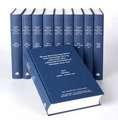 Preț: 2261.34 lei
Preț: 2261.34 lei -
 Preț: 115.53 lei
Preț: 115.53 lei -
 Preț: 548.71 lei
Preț: 548.71 lei - 8%
 Preț: 360.28 lei
Preț: 360.28 lei -
 Preț: 208.31 lei
Preț: 208.31 lei -
 Preț: 138.26 lei
Preț: 138.26 lei -
 Preț: 182.98 lei
Preț: 182.98 lei -
 Preț: 67.35 lei
Preț: 67.35 lei -
 Preț: 279.55 lei
Preț: 279.55 lei -
 Preț: 215.51 lei
Preț: 215.51 lei -
 Preț: 179.04 lei
Preț: 179.04 lei -
 Preț: 106.35 lei
Preț: 106.35 lei -
 Preț: 229.92 lei
Preț: 229.92 lei -
 Preț: 273.93 lei
Preț: 273.93 lei - 8%
 Preț: 346.31 lei
Preț: 346.31 lei -
 Preț: 94.22 lei
Preț: 94.22 lei - 18%
 Preț: 348.59 lei
Preț: 348.59 lei -
 Preț: 147.26 lei
Preț: 147.26 lei -
 Preț: 176.49 lei
Preț: 176.49 lei -
 Preț: 101.43 lei
Preț: 101.43 lei -
 Preț: 146.50 lei
Preț: 146.50 lei - 8%
 Preț: 564.99 lei
Preț: 564.99 lei - 18%
 Preț: 502.35 lei
Preț: 502.35 lei -
 Preț: 216.89 lei
Preț: 216.89 lei -
 Preț: 208.54 lei
Preț: 208.54 lei -
 Preț: 144.99 lei
Preț: 144.99 lei - 8%
 Preț: 563.24 lei
Preț: 563.24 lei -
 Preț: 185.37 lei
Preț: 185.37 lei -
 Preț: 120.81 lei
Preț: 120.81 lei -
 Preț: 167.85 lei
Preț: 167.85 lei -
 Preț: 160.63 lei
Preț: 160.63 lei -
 Preț: 183.89 lei
Preț: 183.89 lei - 9%
 Preț: 352.77 lei
Preț: 352.77 lei -
 Preț: 307.53 lei
Preț: 307.53 lei - 12%
 Preț: 290.56 lei
Preț: 290.56 lei - 9%
 Preț: 352.50 lei
Preț: 352.50 lei -
 Preț: 125.41 lei
Preț: 125.41 lei - 6%
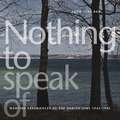 Preț: 324.95 lei
Preț: 324.95 lei - 9%
 Preț: 353.24 lei
Preț: 353.24 lei -
 Preț: 203.53 lei
Preț: 203.53 lei -
 Preț: 145.41 lei
Preț: 145.41 lei -
 Preț: 133.99 lei
Preț: 133.99 lei -
 Preț: 144.80 lei
Preț: 144.80 lei -
 Preț: 302.76 lei
Preț: 302.76 lei -
 Preț: 163.52 lei
Preț: 163.52 lei
Preț: 584.88 lei
Preț vechi: 759.59 lei
-23% Nou
Puncte Express: 877
Preț estimativ în valută:
111.91€ • 116.85$ • 92.63£
111.91€ • 116.85$ • 92.63£
Carte tipărită la comandă
Livrare economică 04-18 aprilie
Preluare comenzi: 021 569.72.76
Specificații
ISBN-13: 9780226080505
ISBN-10: 0226080501
Pagini: 306
Dimensiuni: 152 x 229 x 25 mm
Greutate: 0.56 kg
Editura: University of Chicago Press
Colecția University of Chicago Press
Seria Emersion: Emergent Village resources for communities of faith
ISBN-10: 0226080501
Pagini: 306
Dimensiuni: 152 x 229 x 25 mm
Greutate: 0.56 kg
Editura: University of Chicago Press
Colecția University of Chicago Press
Seria Emersion: Emergent Village resources for communities of faith
Notă biografică
Ronna Burger is professor of philosophy at Tulane University.
Cuprins
Acknowledgments
Introduction The Socratic Question of the Ethics
Part I THE HUMAN GOOD
1 The Final End and the Way to It
From the Good to the Human Good
Opinions about Happiness
The Human Good and the Human Ergon
Happiness in a Complete Life
The Nonrational Psyche
Part II THE BEAUTIFUL AND THE JUST
2 Excellence of Character
A Non-Socratic Account
Habituation
Ethical Virtue and the Measure of the Mean
Responsibility and Nature
3 Virtues and Vices
The Beautiful as Telos of the Virtues
Justice in the City and Justice in the Soul
Part III RETURN TO THE GOOD
4 Excellence of Thought
The Pivot of the Argument of the Ethics
The Rational Psyche
Intellectual Virtues
Phronesis, Sophia, and the Claim to Happiness
5 Pleasure and the Discovery of Nature
A New Beginning: From the Bestial to the Divine
The Faction of Passion and Reason
Pleasure by Nature and the Good
6 Friendship and the Discovery of the Self
Rational and Political Nature
Perfect Friendship and Other Species
Justice in Friendship
The Friend as an Other Self
Friendship, Eros, and Philosophy
7 Happiness
Pleasure Revisited
Introduction The Socratic Question of the Ethics
Part I THE HUMAN GOOD
1 The Final End and the Way to It
From the Good to the Human Good
Opinions about Happiness
The Human Good and the Human Ergon
Happiness in a Complete Life
The Nonrational Psyche
Part II THE BEAUTIFUL AND THE JUST
2 Excellence of Character
A Non-Socratic Account
Habituation
Ethical Virtue and the Measure of the Mean
Responsibility and Nature
3 Virtues and Vices
The Beautiful as Telos of the Virtues
Justice in the City and Justice in the Soul
Part III RETURN TO THE GOOD
4 Excellence of Thought
The Pivot of the Argument of the Ethics
The Rational Psyche
Intellectual Virtues
Phronesis, Sophia, and the Claim to Happiness
5 Pleasure and the Discovery of Nature
A New Beginning: From the Bestial to the Divine
The Faction of Passion and Reason
Pleasure by Nature and the Good
6 Friendship and the Discovery of the Self
Rational and Political Nature
Perfect Friendship and Other Species
Justice in Friendship
The Friend as an Other Self
Friendship, Eros, and Philosophy
7 Happiness
Pleasure Revisited
The Theoretical Life
The Legislative Art
A Socratic Answer to a Socratic Question?
Appendix 1 Socrates, Plato, Philosophy
Appendix 2 Virtues and Vices
Appendix 3 Categories of Justice
Appendix 4 Classifications of Pleasure
Notes
Bibliography
Index
The Legislative Art
A Socratic Answer to a Socratic Question?
Appendix 1 Socrates, Plato, Philosophy
Appendix 2 Virtues and Vices
Appendix 3 Categories of Justice
Appendix 4 Classifications of Pleasure
Notes
Bibliography
Index
Recenzii
“This is the best book I have read on Aristotle’s Nicomachean Ethics. It is so well crafted that reading it is like reading the Ethics itself, in that it provides an education in ethical matters that does justice to all sides of the issues.”
“Ronna Burger’s Aristotle’s Dialogue with Socrates brilliantly interprets the Nicomachean Ethics as a response to the strong forms of Socratic intellectualism. Her scholarly and reconstructive interpretation sets the stage for an exploration of the complex relations between the moral and intellectual virtues, one that has implications for Aristotle’s views on the role of philosophical inquiry in civic life.”
“This is a work of distinction that will be indispensable for all serious students of Aristotle’s ethics. It requires and will repay a close reading of the Aristotelian texts. Burger’s book exhibits the lucidity that is appropriate to complex philosophical argument. In this sense, her study mirrors Aristotle’s own way of writing on the human predicament.”
"The reader will be filled with a genuine sense of anticipation as this work moves to its culminating conclusion. Moreover—and this is an aspect of the work that deserves special praise—the entire monograph is brimming with interesting observations about the connections between passages in the Nicomachean Ethics and specific exchanges within various Platonic dialogues. Burger is an author who has a tremendous number of ideas about a wide variety of passages in both authors, and I think scholars of Plato will find this work just as insightful as those who focus upon Aristotle."
"In her dialectical reflection on Aristotle’s reflection on thinking as a species of action, Ronna Burger discovers the saving grace of our incompleteness—what she calls in her Acknowledgments ‘the unintended consequences of unwished for circumstances’. By tracing the salutary consequences of the unwished for, she has brought to fruition a remarkable interpretation of Aristotle’s Nicomachean Ethics, for she has not forced a Platonic reading on Aristotle but has rather uncovered, in the ground of their friendship, the deep sameness that is revealed in their apparent difference, the dialogic nature of the rational activity of soul."
"This remarkable and wonderful book on Aristotle's Nicomachean Ethics exhibits a profound understanding of both the contents and complex intention of that amazing work. This interpretation cannot be ignored by anyone who intends to write on the Ethics in the foreseeable future. The reviewer cannot do justice to Professor Burger's detailed and subtle analysis of almost every chapter of the Ethics in this brief account of her book, but hopefully enough is intimated to lead those who are interested in Aristotle, the problem of Socrates, ancient philosophy, and the nature of ethical virtue to read this magisterial study."
"On the whole I found Burger's volume to be one of the most philosophically thought-provoking contemporary treatments of the Ethics. . . . The volume has been in the works for over a decade and it is clearly the mature reflection of a scholar equally conversant in philosophy and classics."
"[Burger] invites her readers to reflect on the deepest ethical and theoretical questions. . . . Her impressive work is clearly the fruit of much solitary labor as well as friendly conversation, and it demonstrates Burger's grasp not only of Aristotle's thought but of the many Platonic dialogues she places in conversation with it."
"A remarkable dialectical journey through the Nicomachean Ethics, placing us on the inside track of thinking through the mind of Aristotle."
"A treatment of the Ethics that is both thoughtful and thought-provoking, one that requires, and rewards, careful rereading."
"In Aristotle’s Dialogue with Socrates, Ronna Burger invites the reader to examine the Nicomachean Ethics with a fresh eye, and to consider that it is perhaps not the treatise that it appears to be but rather the dialogue that Plato never wrote: a dialogue between two philosophers. . . . As she discovers and discloses the evidence in the text for Aristotle’s dialogue with Socrates, she herself practices and illustrates how we, the readers, may enter into and engage in a philosophic dialogue with Aristotle."
"Aristotle’s Dialogue with Socrates seems above all to aim to provoke its reader to do the hard work of studying the Nicomachean Ethics as carefully as possible, and as a whole. Doing so, [Burger] believes—and believes rightly—will actually help such a reader become someone ‘who thinks out everything for himself.’ Judged by this standard, her book is an extraordinary achievement."
“Burger has written a book brimming with stimulating puzzles and insights covering, almost in the style of a commentary, every part of the Ethics. . . . Her book’s ability to inspire and foster inquiry into the subject matter of the Ethics is quite possibly the most beneficial result her mode of interpretation yields.”
